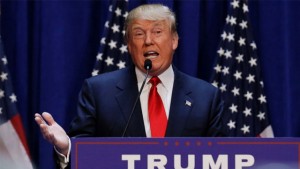 New York,USA — Another phase in the election process for United States presidents, and which will determine if billionaire businessman Donald Trump, or someone else is sworn in as president on January 20, is set to play out across the country today.
New York,USA — Another phase in the election process for United States presidents, and which will determine if billionaire businessman Donald Trump, or someone else is sworn in as president on January 20, is set to play out across the country today.
Five hundred and thirty eight electors — who make up the Electoral College — will meet in their respective state capitols to cast their votes for a president. It will mark the penultimate chapter in a complicated process in which the candidate who polled a majority of the votes does not necessarily become president.
The final act in the process will be January 6, 2017, when the Electoral college votes are counted by the US congress and the winner declared. Today’s election is usually a routine exercise, but the divisive nature of the November 8, 2016 election and the unorthodox candidacy of Trump have led to an intense debate here about the relevancy of the Electoral College.
A recent poll by news giant CNN found that 51 per cent of Americans feel that the system should be changed. It is a position that has found robust support among the Jamaican community here, which went almost exclusively for Trump’s democratic rival Hillary Clinton in the elections on November 8.
“There should be a thorough review and re-examination of the system,” Sadie Campbell, who heads the Jamaica Progressive League, said in an interview on the results of the election. She said it is neither fair nor democratic for a candidate to poll a majority of the votes — Clinton polled over two million votes more than Trump — but still end up losing the election.
Noel Godfrey who leads the Jamaica Association of Maryland, argued that, while the system may have worked in the past, “its relevance in today’s society is questionable”.
“There is definitely a need for a review of the system,” he said.
Meanwhile, Ronnie Hammick, who heads the Ex-Correctional Officers Association of Jamaica, expressed hopes that “the system will be changed for one that allows the winner of the most votes to become president”. He said that he supported “any move towards such a change”, and hoped it was something that congress would consider.
While agreeing that “some aspects of the electoral college system should be revisited”, Rick Nugent who heads the National Association of Jamaica and Supportive Organisations gave a more measured response to the issue. He said that, while he has heard many expressions of displeasure about the outcome of the elections and calls for a reform of the electoral college system, “It is still the democratic system.”
And at least one leader in the Diaspora is not in favour of changing the Electoral College. “ I would not advocate for any change to the system,” said Florida-based Wayne Golding, who heads the Diaspora Board for the Southern US, including the states of Georgia, North and South Carolina, Florida, and Texas among others.
He views the system as one of checks and balance and which is “not dissimilar to our own Jamaican situation, where voters vote for MPs who then select the prime minister from among them”.
The electoral college system has been in place for more than 300 years and was established for several reasons, among them to safeguard against manipulation of the electoral process by powerful individuals, guarantee that smaller states have a say in the process, and to ensure that an individual is competent and qualified for the office.
While electors in today’s exercise are not expected to overturn the result of the November 8 vote, it is worthy to note that there is no federal law nor constitutional requirement that bars them from not voting in accordance with how their states voted in November.
However, some states can impose sanctions and penalties under their laws against such electors.
